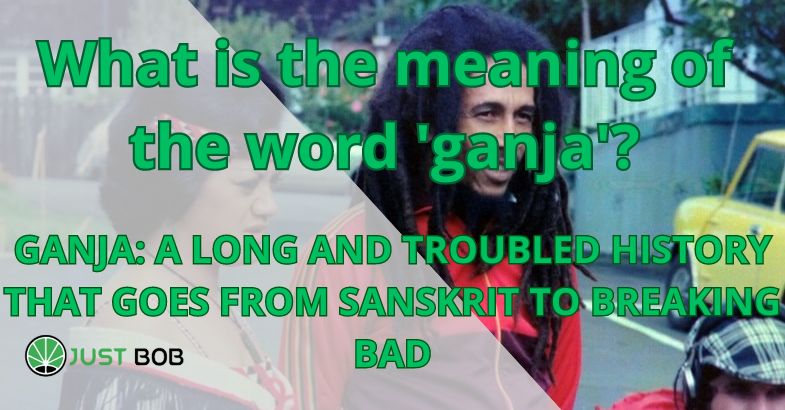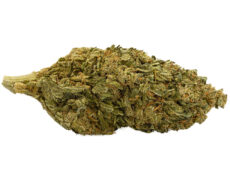Modified on: 11/04/2024
GANJA: A LONG AND TROUBLED HISTORY THAT GOES FROM SANSKRIT TO BREAKING BAD
What does ‘ganja’ mean?
Although everyone associates it with Jamaica and Bob Marley, the term has a centuries-old history whose roots actually lie on the other side of the world: Justbob’s website will help you learn more about it!
-
 SMALL & BIG
SMALL & BIGBUBBLEGUM
Starting from: 1,25CHF/gIndoor | CBD – CBDA <22%
Grams3 5 10 20 50 100 -


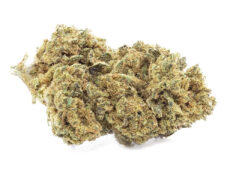
DO SI DOS
Starting from: 2,00CHF/gIndoor | CBD – CBDA < 19%
Grams3 5 10 20 50 100 -


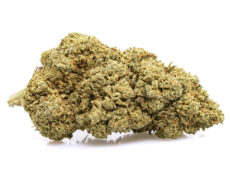
ROYAL GG#4
Starting from: 2,30CHF/gIndoor | CBD – CBDA < 40%
Grams3 5 10 20 50 100 -


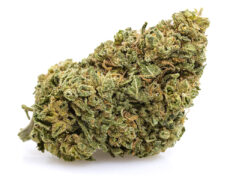
GORILLA GLUE
Starting from: 2,90CHF/gIndoor | CBD – CBDA < 20%
Grams3 5 10 20 50 100
More precisely, in India.
Let’s find out why together.
Origin of the term ‘ganja’
The Hindi word ‘ganja’ is inherited from the ancient Sanskrit language, which is believed to be the language of origin of the term and refers specifically to the flower CBD buds.
Also in Hindi, ‘Charas’ indicates resin and ‘Bhang’ refers to the leaves and seeds of the plant, as well as a milky tea prepared with it. The evolution of ganja is an example of ancient wisdom that has surrounded the world over thousands of years, much like the plant itself that has been shared among peoples and cultures as a way to improve life.
The Sanskrit term made its debut in the vocabulary in the late 19th century thanks to Indian workers in Jamaica.
Indian swamis in particular had a close relationship with ganja and CBD, whose origins and development are ancient, and used it in Indian folk medicine as an aphrodisiac and painkiller.
But that is not all.
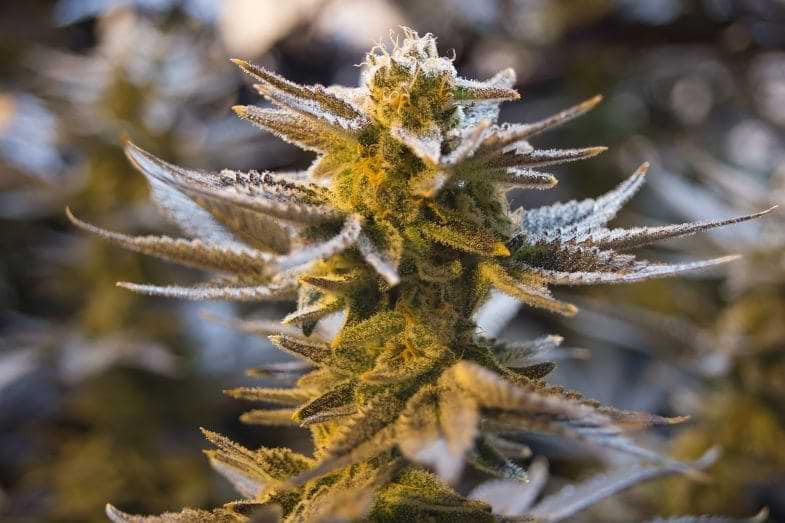

You should know that cannabis culture has different tropes, terminology and references around the world: in every language and in every region, there are anywhere from a handful to dozens of different names that people use for the plant. Regardless, ‘ganja’ is one of the most well-known and ubiquitous terms when meeting other users, and no matter where you are, people associate it with Jamaica, reggae and the Rastafarian religion (which we’ll talk about in a moment). ).
But, as we said, although Jamaicans established the cultural and philosophical meaning of the term ganja in its current form, the word itself comes from India.
Read also: The complex history of CBD legalization in the United States
Ganja from East to West
Like other Caribbean islands, Jamaica was colonized by European nations starting in the 1500s.
The indigenous people who lived there since 600 AD approximately – the Tainos – were enslaved, starved and exploited by the Spanish colonizers and over the course of fifty years almost the entire population was wiped out.
After the Spanish came the English, whose military conquered the island in 1655. The English colonizers exploited Jamaican resources and used the island for the production of sugar cane, enriching themselves with the labor of West Africans enslaved for the harvest. Many escaped and lived within the island, creating communities of free blacks, evading capture and resisting the colonizers.
These people became known as Maroons.
After Britain abolished the human trafficking industry, emancipated people in Jamaica no longer wanted to work for British sugarcane operations, so the empire began looking for a new source of plantation labor.
While the end of the transatlantic slave trade led to the dismantling of much of the human trafficking infrastructure that had been embraced by the British Empire for so long, it did not prevent human traffickers from leaving the empire or modify their practices slightly.
That’s right, you read that right.
In 1845, Britain began trafficking in indentured servitude from India to work on sugar cane plantations. Keep in mind that between 1845 and 1917, Britain brought nearly 40,000 people from India to Jamaican plantations!
The fight against colonial exploitation continued under a new set of definitions, but with these workers also came cannabis and knowledge of its many preparations, including ganja.
And the gift that Hindi speakers brought to the island would change Jamaica forever.
Ganja and Rastafarianism
The intertwining of Indian and Jamaican cultures that followed brought the word ‘ganja’ to Jamaica.
By the early 20th century, smoking ganja had become a common practice among young black Jamaicans working in the fields. The Black Power, Pan-African message of Rastafarianism found fertile ground among this disenfranchised population.
As many of these workers were displaced and moved to poor urban areas, the message of spiritual ganja use, pan-Africanism, and black liberation strengthened.
The Jamaican elite felt threatened by this movement and in 1948 ganja was made illegal. Thus, by the mid-20th century, ganja had become an integral part of the anti-establishment movement that is Rastafarianism.
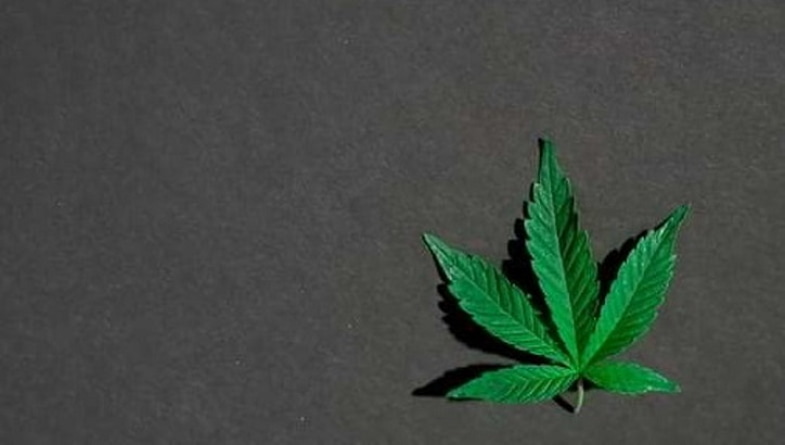

What does ganja mean today? Modern references
Through reggae music, cultural figures such as Bob Marley popularized Rastafarianism and ganja, and recognition of both rapidly increased in Western culture.
Even today, we associate the word ganja with Jamaican culture.
Even if we pay little attention to the origins of the word, the term ganja appears almost everywhere in Western cannabis, from specialty shops to seed banks, from music to films.
And as we have seen, the ubiquitous word actually has a very rich history.
As its notoriety has increased, the term has made several appearances in art and culture outside of music. One of the first uses of ‘ganja’ in cinema is the 1980 British film Babylon, a story of young black men in London during the international rise of Reggae. This film represented the final step towards the diffusion of ganja (also known as light hemp).
Sa then the popularity of the term skyrocketed, with references in countless films, including:
Lock & Stock – Crazy Unleashed;
8 Mile;
The children of men;
Let’s get this over with;
Bad Boys;
Adventureland;
and many more.
The term has also been used in many television series, including Tales from the Crypt and The Sopranos in the 1990s, as well as in Scrubs and Breaking Bad.
Read also: HHC banned in France: a new twist in cannabis regulation
Conclusions
This article was intended to offer a general overview of the history of the term ‘ganja’.
Today its use is mixed with myriad other terms used interchangeably for cannabis, but ‘ganja’ remains one of the most iconic, with a global history spanning thousands of years.
While there are many slang terms for weed, which have been lovingly embraced by consumers around the world, only ‘ganja’ has a legacy long enough to inspire people to prioritize unity and hope in the face of oppression.
If you liked this article, read our blog where you will find lots of news and insights on hemp, CBD weed and other products!

